The Texas Power of Attorney is an efficient legal form that can be taken advantage of by any person who wants to convey personal powers to another individual so that they may accomplish an assignment in their name. This means that an active POA can enable a third-party representative to access confidential materials, sign various paperwork, and even make or receive payments for the principal. Given these facts, interested parties should comprehend that there are several distinct classes of POA documents that offer different formats. These formats can vary in the powers that are delivered (financial, medical, or parental) and the term of the conveyance (durable or general). After procuring the instrument that applies to your situation and filling it in with the essential details, you will generally be required to endorse the form in the presence of a notary public so that they may acknowledge your signature.
Laws
Statutes – Texas Statutes – Title 2, Chapter 751: Durable Power of Attorney Act
Definition – A “durable power of attorney” is a writing or other record that designates another person as agent and grants authority to that agent to act in the place of the principal, regardless of whether the term “power of attorney” is used (751.0021(a)(1)).
Signing Requirements – Acknowledgment of Notary Public (§ 751.0021(a)(4))
By Type (11)
- Advance Directive (Medical POA & Living Will)
- Durable (Financial) Power of Attorney
- General (Financial) Power of Attorney
- Limited (Special) Power of Attorney
- Living Will
- Medical Power of Attorney
- Minor Child Power of Attorney
- Motor Vehicle Power of Attorney
- Real Estate Power of Attorney
- Revocation of Power of Attorney
- Tax Power of Attorney
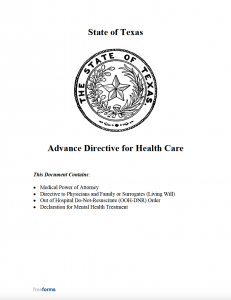 Advance Directive (Medical POA & Living Will) – Users can establish their medical wishes in regard to critical treatment in life-ending situations and appoint an agent to make decisions for them if they are ever incapacitated.
Advance Directive (Medical POA & Living Will) – Users can establish their medical wishes in regard to critical treatment in life-ending situations and appoint an agent to make decisions for them if they are ever incapacitated.
Download: PDF, Word (.docx)
Signing Requirements: Acknowledgment of Two (2) Witnesses or Notary Public (§ 166.154 & § 166.032)
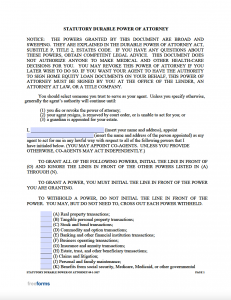 Durable (Financial) Power of Attorney – Provides the option of granting an assortment of financial powers and persists past the point of the grantor’s incapacity.
Durable (Financial) Power of Attorney – Provides the option of granting an assortment of financial powers and persists past the point of the grantor’s incapacity.
Download: PDF, Word (.docx)
Signing Requirements: Acknowledgment of Notary Public (§ 751.0021(a)(4))
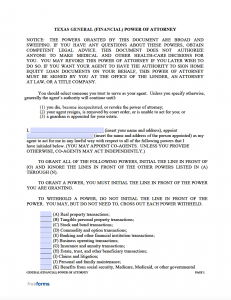 General (Financial) Power of Attorney – Contains all the same finance-related powers as the durable form except that it will cease to operate once the principal has become disabled or incapacitated.
General (Financial) Power of Attorney – Contains all the same finance-related powers as the durable form except that it will cease to operate once the principal has become disabled or incapacitated.
Download: PDF
Signing Requirements: Acknowledgment of Notary Public
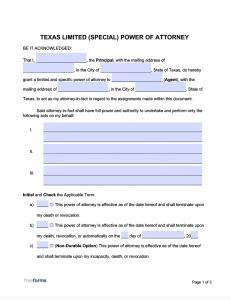 Limited (Special) Power of Attorney – Restricts the amount of authority granted by providing an area within the form where the conveyor can write in the exact description of what they would like to be carried out on their behalf.
Limited (Special) Power of Attorney – Restricts the amount of authority granted by providing an area within the form where the conveyor can write in the exact description of what they would like to be carried out on their behalf.
Download: PDF, Word (.docx)
Signing Requirements: Acknowledgment of Notary Public (§ 751.0021(a)(4))
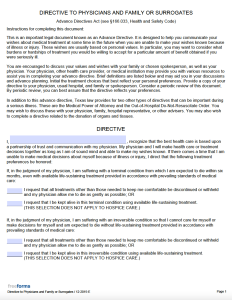 Living Will – A health care directive that informs doctors, loved ones, and surrogates of your preferences regarding end-of-life care.
Living Will – A health care directive that informs doctors, loved ones, and surrogates of your preferences regarding end-of-life care.
Download: PDF
Signing Requirements: Acknowledgment of Two (2) Witnesses or Notary Public (§ 166.032)
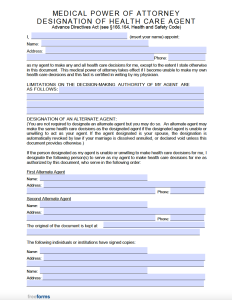 Medical Power of Attorney – Has the sole function of assigning powers to a third (3rd) party regarding medical decisions that need to made at the time of the principal’s incapacity.
Medical Power of Attorney – Has the sole function of assigning powers to a third (3rd) party regarding medical decisions that need to made at the time of the principal’s incapacity.
Download: PDF
Signing Requirements: Acknowledgment of Two (2) Witnesses or Notary Public (§ 166.154)
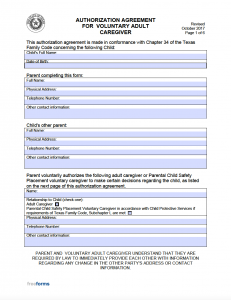 Minor Child Power of Attorney – The parent/guardian of a child may appoint another individual to be the temporary caregiver to the minor to handle aspects of the minor’s life relative to their medical/dental treatment, education, insurance, benefits, etc.
Minor Child Power of Attorney – The parent/guardian of a child may appoint another individual to be the temporary caregiver to the minor to handle aspects of the minor’s life relative to their medical/dental treatment, education, insurance, benefits, etc.
Download: PDF
Signing Requirements: Acknowledgment of Notary Public (§ 34.004)
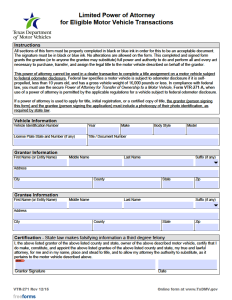 Motor Vehicle Power of Attorney – Assigns a third (3rd) party the ability to carry out automobile-related transactions in the name of the principal.
Motor Vehicle Power of Attorney – Assigns a third (3rd) party the ability to carry out automobile-related transactions in the name of the principal.
Download: PDF
Signing Requirements: Only requires the endorsement of the granting party.
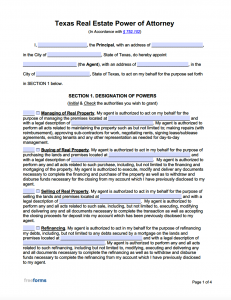 Real Estate Power of Attorney – Is geared towards individuals who wish to acquire the assistance of another party to accomplish real property transactions in their name.
Real Estate Power of Attorney – Is geared towards individuals who wish to acquire the assistance of another party to accomplish real property transactions in their name.
Download: PDF, Word (.docx)
Signing Requirements: Acknowledgment of Notary Public (§ 751.0021(a)(4))
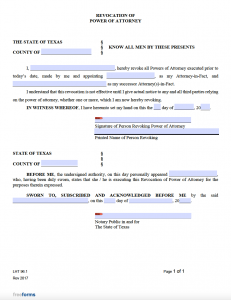 Revocation of Power of Attorney – Any individual who has put forth a POA document may end the terms of the policy by fulfilling the obligations of this instrument.
Revocation of Power of Attorney – Any individual who has put forth a POA document may end the terms of the policy by fulfilling the obligations of this instrument.
Download: PDF
Signing Requirements: Acknowledgment of Notary Public
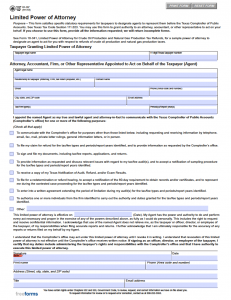 Tax Power of Attorney – If a taxpayer decides to hire the services of a professional to handle their tax obligations, they may carry out this document to permit the representative to execute filings, make payments, and sign documents in their name.
Tax Power of Attorney – If a taxpayer decides to hire the services of a professional to handle their tax obligations, they may carry out this document to permit the representative to execute filings, make payments, and sign documents in their name.
Download: PDF
Signing Requirements: Only necessitates the signature of the taxpaying party.


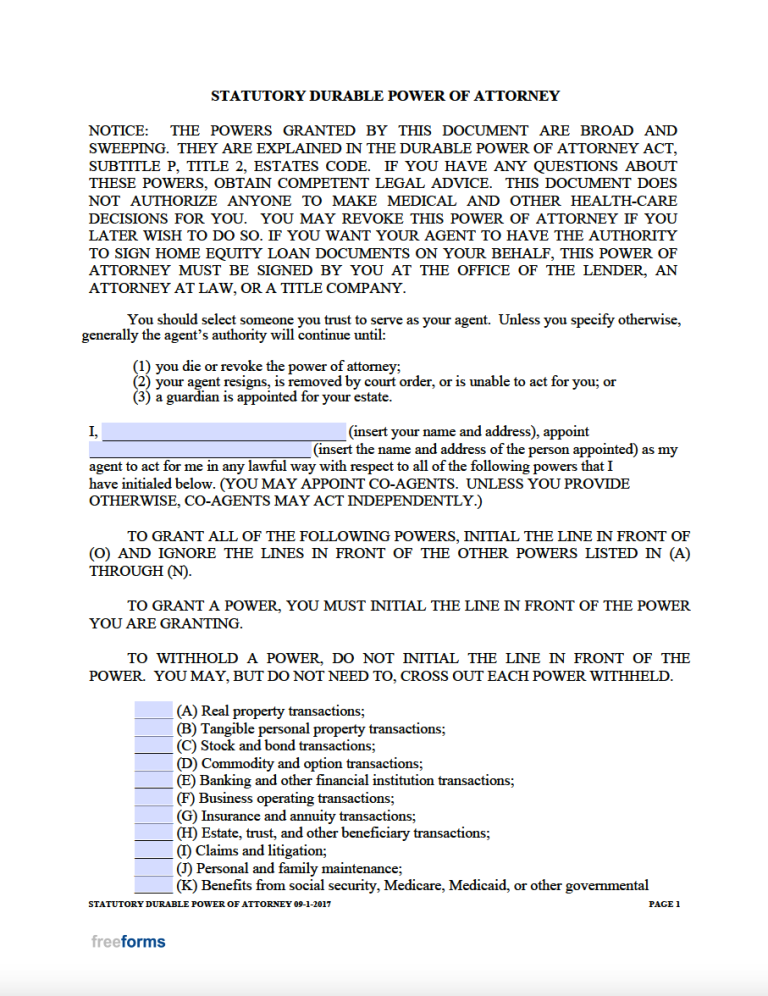
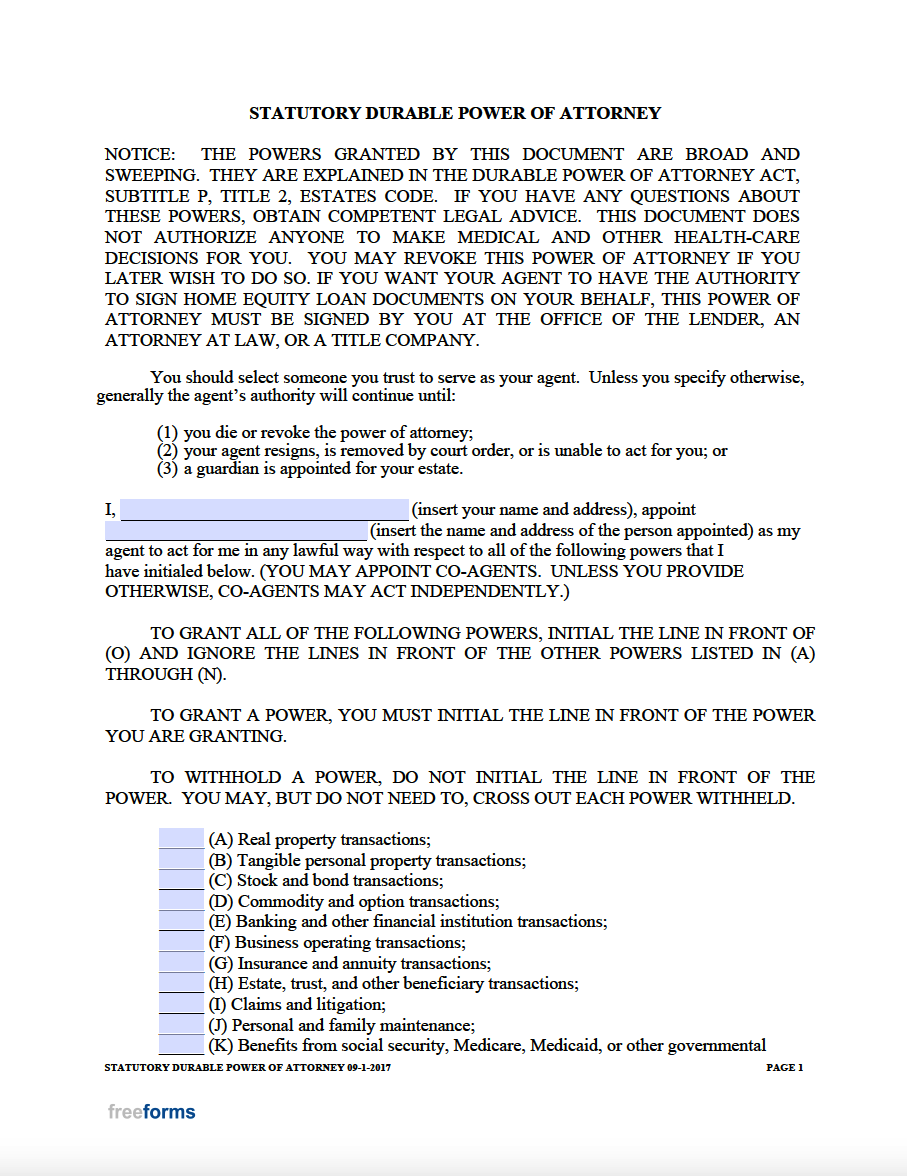
Comments